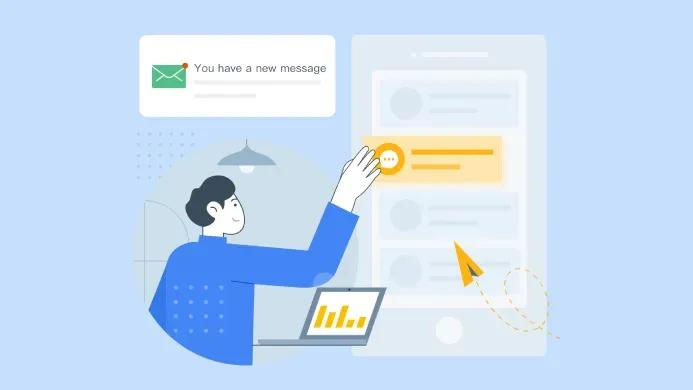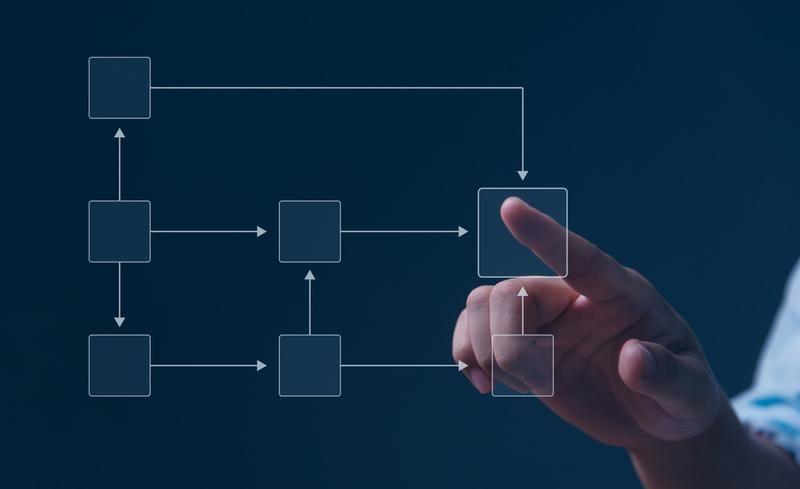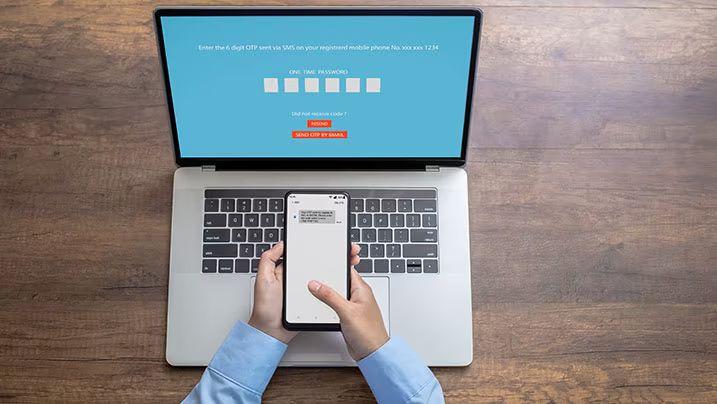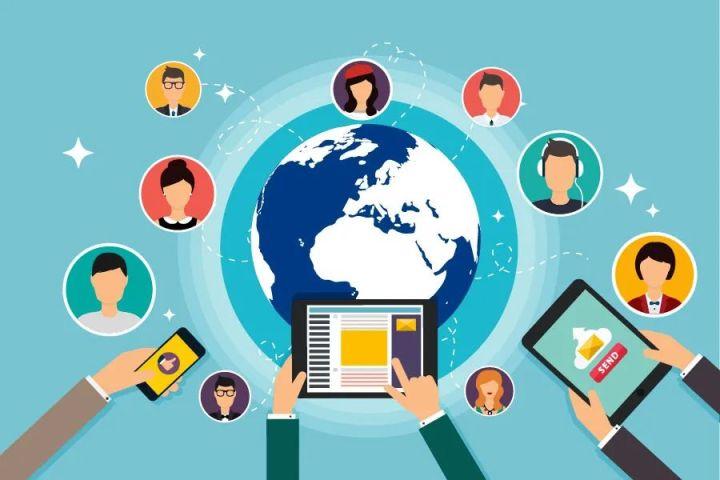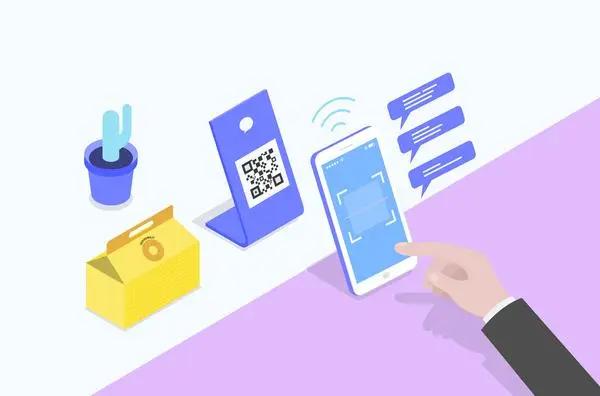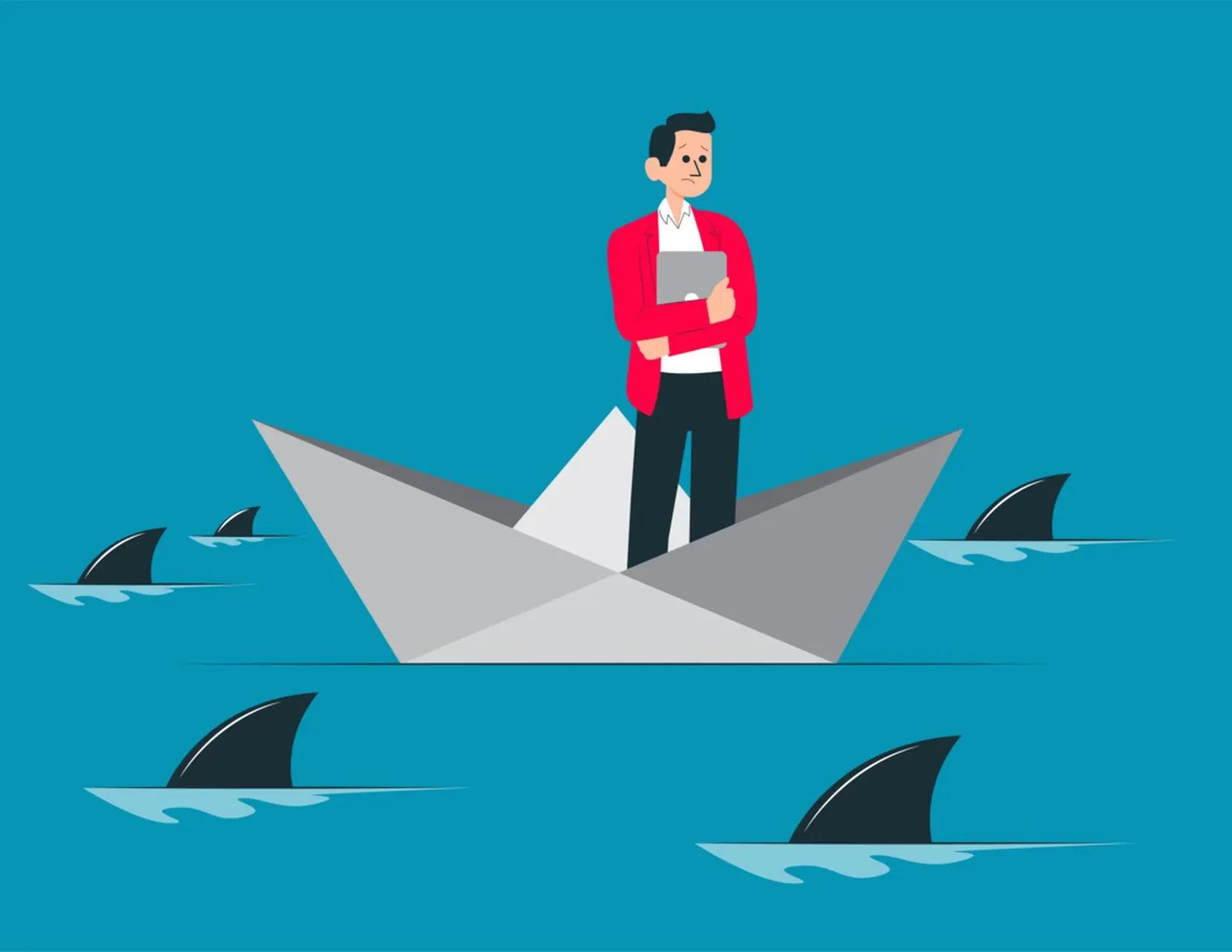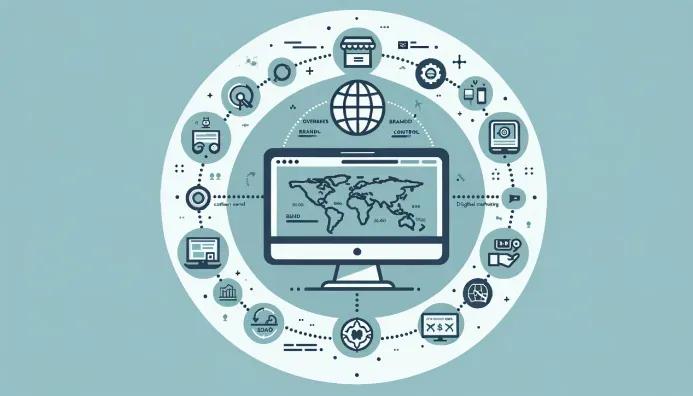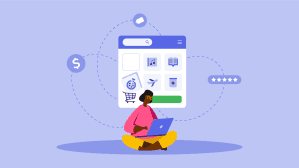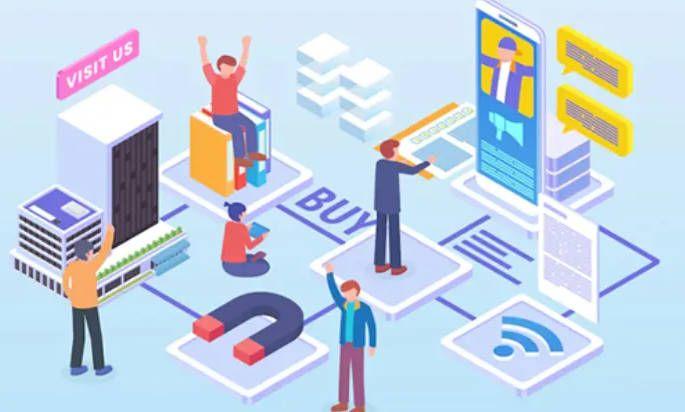客服系统

Driving culture and motivating our people in challenging times
Creating an empowering culture is important for every business. And in the midst of the COVID-19 pandemic, protecting that culture and finding new ways to keep people connected, engaged, and healthy becomes even more essential.Earlier this year, the Workplace Services team launched several initiatives for LIKE.TG employees in the EMEA region, allowing them to come together, learn something new and build their networks.We had also invested in our main office workspaces, including our sites in Staines and Dublin, to create amazing settings to inspire creativity and boost productivity.But the dramatic, almost immediate, shift to working from home in March 2020 meant we had to pivot quickly to adapt our strategy.Going digitalWhen the COVID-19 pandemic hit Europe, Workplace Services had to ensure the initiatives we introduced didn’t stop just because our people weren’t physically present.So, we transferred them online, using video calls, our internal social media network, webinars and more. We offered HIIT classes and Yoga, socials and quizzes, and educational sessions, like how to work from home effectively and how to deal with anxiety.We also embraced delivering support services remotely throughout the lockdown period. Through virtual hangouts, employees can raise queries or ask for help with any aspect of their work set up.There is now greater collaboration with our IT colleagues as well, despite being separated physically, as we run joint employee support sessions and meet online regularly to align our programs.An unexpected up-sideIn many ways, the move to virtual service has been incredibly positive, reinforcing our commitment to creating a culture of diversity, inclusion, and belonging.We’ve not only kept our initiatives going; we’ve made them much more accessible, which is evident in the large number of signups. The barriers have been removed for those who couldn’t participate because they either weren’t in a LIKE.TG office, had to get home to family, or didn’t want to exercise in front of others.The social sessions are very popular and are bringing together people from across the LIKE.TG EMEA workforce — business leaders, colleagues from different departments, and employees from various countries, for instance — often for the first time.Our quiz nights are a great example. They have become household affairs, with employees bringing their families and friends online -- with the promise of a pizza delivery for the winning team proving to be a great incentive!Being apart has, in fact, brought us together in a way we hadn’t achieved before.A resounding successThe response from employees has been immensely positive. They are participating in activities they wouldn’t have previously and connecting in novel ways with colleagues from across the region.I’m proud of our team for adapting so quickly by turning an extremely complex and difficult situation into an opportunity to drive positive changes. Our success really comes down to four key factors:
Clarity: We’ve been very transparent in our communication with employees on what we want to achieve and the initiatives we are running. Everyone is clear on what we can offer and how they can get involved.
Proactivity: We acted quickly to transfer the activities program online, promote the new approach company-wide and look for input and feedback to drive continuous improvements.
Structure: We launched new initiatives or transferred existing ones online thoughtfully. Although actioned quickly, our approach was considered and planned, ensuring support from senior management. Buy-in from my team was secured to drive the delivery.
Agility: Though guided by our North Star, we also know we must be flexible. The COVID-19 crisis is continually changing how we live and work, so we make sure we can tweak things as needed. A ‘one size fits all’ approach simply won’t work, so we take a global framework but empower delivery locally.
Looking to the futureOur pivot to a digital program was essential to support our remote workforce, but we are also starting to plan our eventual return-to-work strategy.We’ll continue to run virtual sessions even after some employees return to a LIKE.TG office, but we’ll also start new initiatives at our sites, including a garden community for our green-fingered colleagues in Staines.This period has taught us just how important inclusion and belonging are within an organization. By evolving our Workplace Services program, we will continue to make work better for our own employees throughout and beyond the COVID-19 crisis.
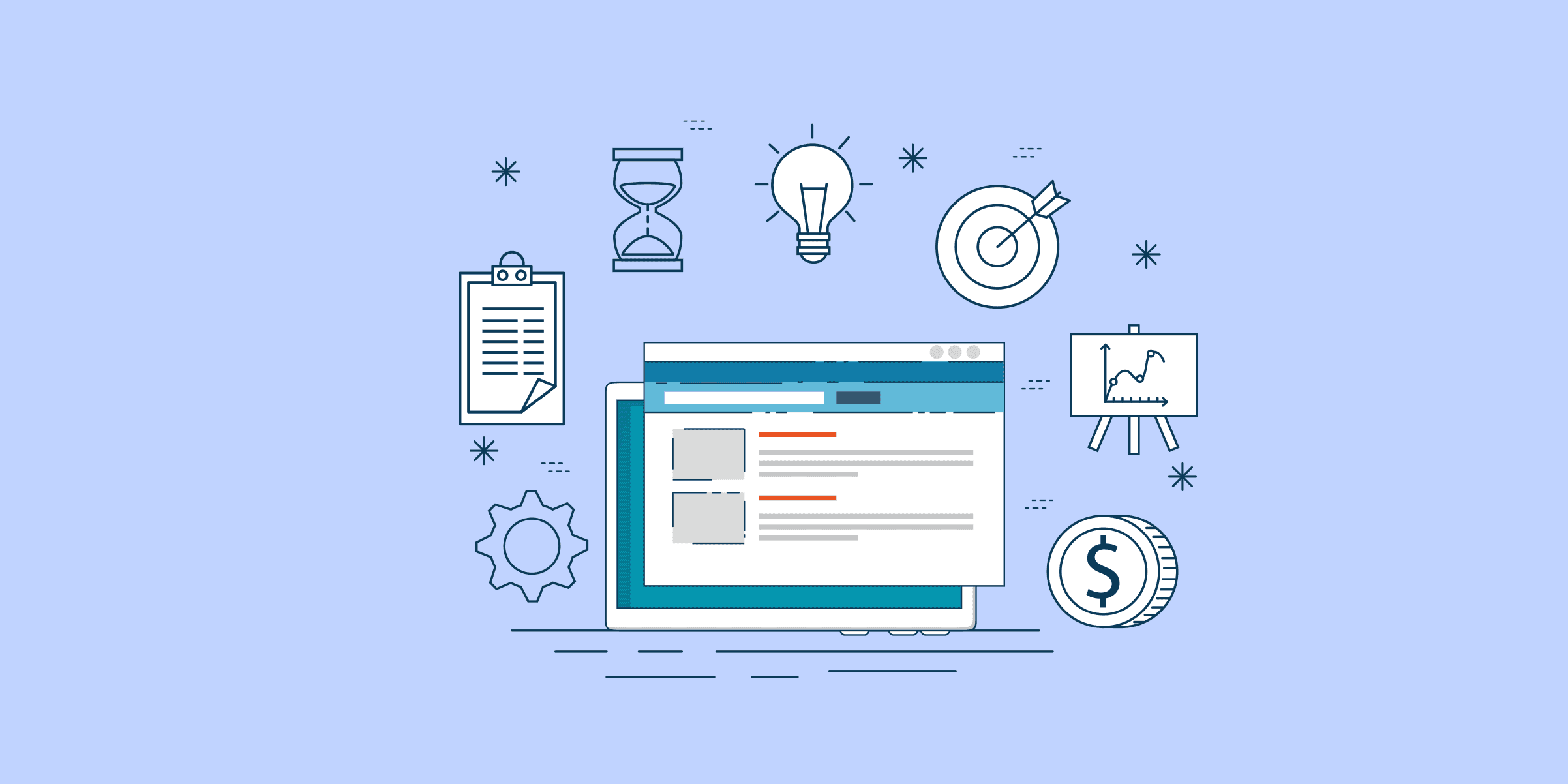
Supporting community and colleagues during COVID-19
Can pandemics have a silver lining? We think so. LIKE.TG employees from all over the world have been coming together the past few months to not only support each other but to serve their local communities due to COVID-19. For Hyderabad-based Radha Govinda Gantayet, he found support in his team during a time of need.Radha was working in Hyderabad the day he got the call from Bangalore that his pregnant wife was admitted to the hospital and in critical condition. However, due to COVID-19 restrictions, it was difficult to travel the 590km/367 miles to Bangalore. “I tried everything, even obtained police clearance, but after traveling for hundreds of miles I was stopped at the Telangana and Karnataka border and was told by police to go back to Hyderabad,” said Radha. “It was one of the moments I really felt helpless.”Radha later shared his dilemma with his manager, and he brought in HR and Security to see if anything could be done. And, there could be! With this team’s help, he was able to meet with the commissioner of police and explain his situation. He received an exception clearance letter allowing him to travel to his wife in Bangalore.
“I wouldn’t be here without the help of my team,” he said. “I am eternally grateful for their support and care when I needed it the most during such a chaotic time. This, to me, is what humanity looks like.” Radha and his wife welcomed a healthy baby boy in June.Not only have LIKE.TG employees been helping each other, they have also extended their outreach externally by helping their communities all over the world.In the U.K., Carolina Pascual and Hassan Alibhai have responded to the pandemic by making and donating personal protective equipment. Carolina and her daughter are sewing face masks every week and donating them to LIKE.TG colleagues, close friends, and members of her church, while Hassan and his son have been making face shields for their local hospital workers.Ofer Parizer and his peers are sewing masks in Kirkland, Washington. Ofer’s crew was able to sew 2,000 masks for their community’s hospitals in just two weeks. Ofer turned to the LIKE.TG community to help gather donations and materials, and the support allowed him to continue making masks to support their local healthcare workers.
In Switzerland, Tolga Tutel and his wife responded to the pandemic by supporting their local retirement home by delivering food to the pensioners. "It's helping them significantly and frees up the caretakers and nurses for other important work,” said Tolga. “And for me and my wife, it’s a chance to go out of the house during lunch time and make some people happy.”Across the globe in Japan, Eri Okumura is spreading kindness to health care workers. Noticing that a salad restaurant in her office building is donating food to healthcare workers, Eri joined the support by sending origami thank-you notes along with the meals. Eri was also able to get her team to help make notes and colleague, Tamaki Sakamoto’s, daughter was a superstar in helping to create the most origami notes out of everyone to share her appreciation.In addition to their local efforts, LIKE.TG employees raised $250,000 through a corporate matching gifts campaign for non-profits in the employees’ communities that are addressing the COVID-19 pandemic. These donations, in addition to LIKE.TG’s global impact corporate grants, totals $1.5 million to organizations including the American Red Cross, International Medical Corps, Feeding America, CDC Foundation and World Health Organization.Even during this tough time, the LIKE.TG community donates their time and resources to help not only their neighborhood communities, but also each other.We’re hiring. Join our team.
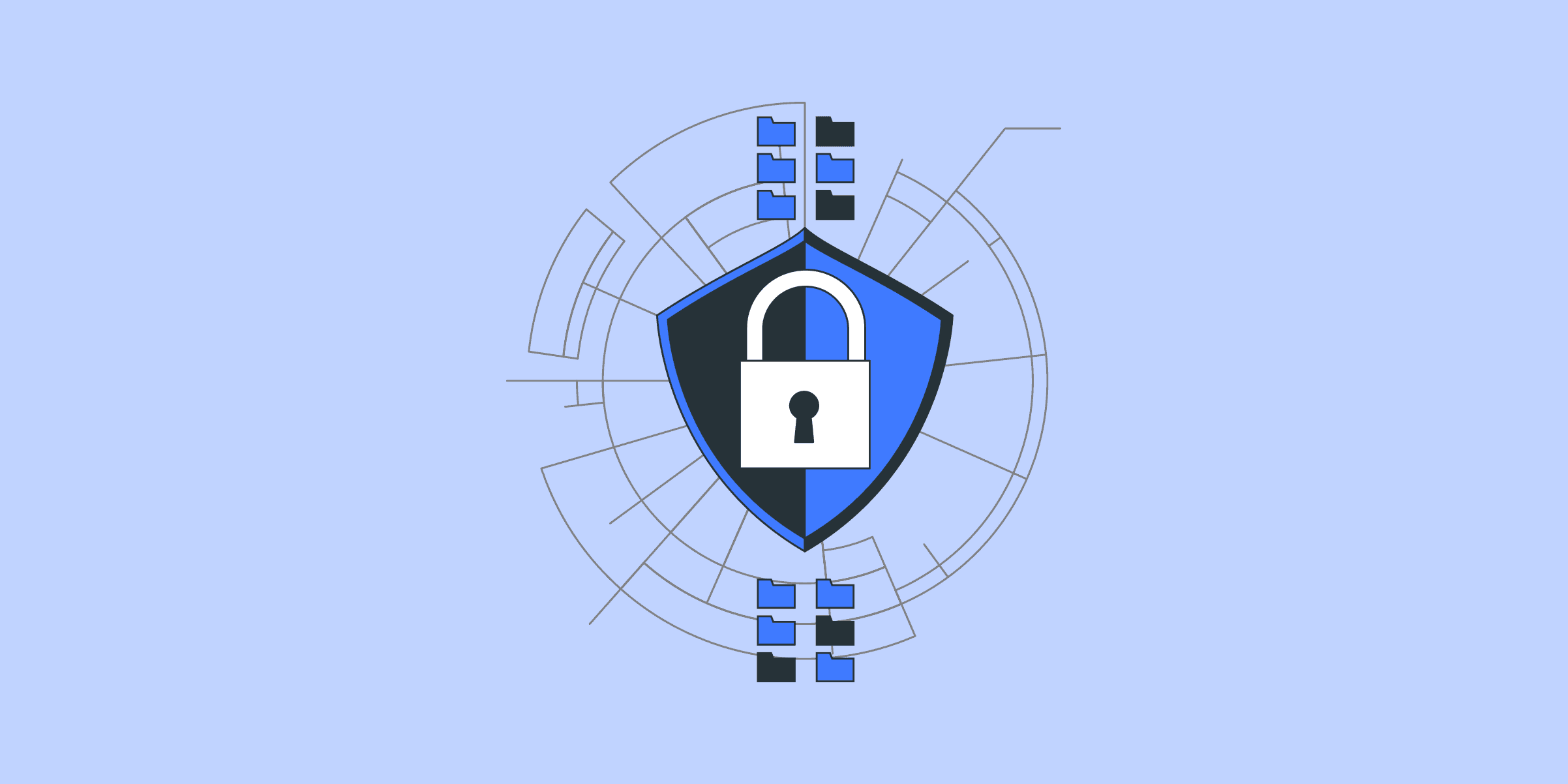
Meet our Culture Champions: Creating a culture of belonging at LIKE.TG Dublin
Jane Irwin is a Culture Champion in Dublin. When she interviewed for her current role at LIKE.TG, the recruiter talked a lot about the company culture and the relatively new Dublin office. Jane says, "I took it all with a pinch of salt. He was selling me the job after all and nowhere could be as good as it was sounding. On my first day as Senior Tax Analyst, I realized that he was spot on and the culture here in Dublin is really as good as he described.”The Culture Champion team is a community of employees who are passionate about delivering local initiatives that strengthen LIKE.TG’s company values and culture. “If you get it right,” explains Maeve Carmody, another Culture Champion and Office Manager on the Dublin team, “work becomes a pleasure and not a chore.”The Culture Champion teams are empowered to drive grassroots action that create belonging moments and build a sense of community. From yoga classes, running clubs, holiday-themed celebrations, monthly socials, giving back days, and bring your kids to work, they create a culture where everyone feels they belong and are part of a bigger team. “Belonging is the piece of the puzzle that makes people happy,” shares Jane. “There is space for everyone to be their authentic selves.” This even goes as far as when someone joins the Dublin office, Maeve puts a lot of thought into where they will sit in the office, especially if their team works in another global LIKE.TG office. It’s a very welcoming culture in which people take the time to get to know new starters and one another.
Creating this type of culture is important given how quickly the site is expanding. In just over a year, the Dublin office has grown over four times in size from 23 to 110 employees. As an international technology hub within Europe, we’re attracting the best tech talent across a variety of new roles within Sales, Solution Consulting, Engineering, Internationalization, Finance, Legal, Marketing, and other functions. Every month, the Dublin office welcomes six to seven new starters from over 25 different nationalities, across a broad age range (from mid-20s to mid-60s), into a variety of functions. “Each time a new person joins the team, it brings something new and dynamic to the office,” shares Maeve. “Although numbers are growing, we still want to create that strong cultural feel.”A focus area for the Culture Champion team this year has been how to continue to strengthen the culture in our COVID-19 world where all our employees are currently working from home and our newest employees have never met their colleagues face-to-face. “It’s in our DNA to create a culture of belonging,” explains Maeve. “So instead of stopping us, COVID-19 has made us stronger by encouraging us to find new ways to stay connected.” The monthly face-to-face socials have turned into virtual coffee mornings and the very competitive “Quarantine Quiz.” Our weekly yoga and fitness classes are now online, and we still bring kids to work by inviting them to join in on our virtual magician shows for the whole family. Additionally, Dublin is also active in our Global Impact work, recently joining forces with colleagues in the UK to create LIKE.TG’s first virtual Giving at Now week. Through employee donations, which were matched by LIKE.TG, we raised $10,000 in one week for four charities in the UK and Ireland including Focus Ireland and the Dublin Rape Crisis Centre. “We are still the same company and team, we’ve just found new ways of keeping connected. No matter how much we grow and what challenges we may face in the future.”Want to join our team at LIKE.TG? We’re hiring!

Why I’m ready for the next technology revolution
In his Knowledge 2020 digital experience keynote, our CEO Bill McDermott signalled the start of a workflow revolution.This month, I’ve embarked on a revolution of my own, stepping into my new role at LIKE.TG as EMEA SVP and General Manager.The time is right to take on the next challenge and, genuinely, there is only one organisation I want to do that with.The time is nowLIKE.TG has always been a great company, with its culture firmly grounded into the fabric of the company through its founder, Fred Luddy. However, 16 years on from its inception, it’s on a journey to become the defining enterprise software company of the 21st century.In the midst of a global pandemic, our purpose and technology have never been more relevant to the world we live and work in today.When I started my career in the mid-1990s, I was running a small field sales team at Procter and Gamble. We had no laptops, no mobile devices, and a fixed, tethered place of work.Since then, technology has driven change at an unprecedented rate, redefining our experiences through connectivity, automation, AI, mobility, the cloud and more.Yet even as recently as a few months back, no-one could have predicted the challenges and changes the world is going through right now. In 2020, the digital transformation buzzword is now an imperative — and LIKE.TG is poised to take centre stage as the technology partner of choice.Flexibility, resiliency, agilityThis year is having a polarising effect on business. The organisations that are coming through 2020 well are way ahead in their digital transformation journeys.They have put in place the platforms, workflows and tools to serve employees and companies well and respond rapidly to our dynamic world. They are emerging stronger as a result.Other organisations are struggling to ride out the changes and we’re seeing the gap widening between the digital transformation leaders and those yet to embrace change.Flexibility is critical to riding the changes of 2020 and beyond and that’s what LIKE.TG brings. A platform with the scale to partner with the largest organisations, and the agility that is so necessary to manage the changes they have to make.Redefining the enterprise in EMEAThe opportunity across EMEA is huge. The region is already home to some of the world’s greatest, most innovative companies. These firms are doing some amazing things.Brands like Vodafone and Coca-Cola European Partners are using the Now Platform® to innovate, boost customer engagement and transform the employee experience.Yet there is so much more we can do to drive digitally enabled change. CEOs and CIOs across EMEA are making fundamental decisions right now on the partners they need to navigate their business challenges.As Bill McDermott again highlighted in the Knowledge 2020 keynote: “LIKE.TG will be the catalyst to redefine the enterprise — not as it is today, but as it must be tomorrow.”It’s about innovating, redefining business models, challenging the way work is done — and that’s incredibly exciting. By joining LIKE.TG, I have the unique opportunity to be at the forefront of this workflow revolution in the EMEA region, where LIKE.TG achieved an approximately $1bn revenue run-rate as of Q1 2020 and grew revenues 32% in 2019 over the prior year.In my first week, I’ve been struck by the culture at LIKE.TG, centred on inclusion and belonging, where there is a palpable pride and excitement at being part of this organisation.In 2020, LIKE.TG moves forward into its next phase of growth with a sense of purpose, grounded in values that set us up for the long term. I’m ready to play my part in our epic journey as we drive to become a $10bn+ revenue company globally.Learn how you can transform operational productivity in this Forrester Research Study: Driving Digital Transformation and Business Value with ServiceNow.

We're evolving our go-to-market functions to build the future with you
By: Lara Caimi and Kevin HavertyLIKE.TG isn’t your typical enterprise software company. Our belief that technology exists in service of people and our founding focus on customer success are just a couple of the things that set us apart. When we make your work lives, work better, we all win.That’s why today we announced how we’re evolving our go-to-market functions to drive deeper customer success and engagement and to build an even more exceptional partner ecosystem. As the new leaders for all global sales activities (Kevin) and for all customer success activities and partner ecosystem development (Lara), we wanted to share our perspectives on why we’re pushing the envelope even more and what it means for you, our customers and partners.It’s no secret that the pandemic is underscoring the urgent need for companies to digitally transform. The need to digitize workflows is accelerating, especially as we all work to get employees, staff, and even visitors (remember them?) safely back to workplaces. One of the consistent themes from the customers we talk to is how important digitization is, not just to keep their employees safe and healthy and their customers loyal, but also to protect their revenue, maintain business resilience, and keep their employees productive during this prolonged pandemic. With people working from anywhere right now, leaders know they need to automate the slow, wasteful manual work and free people up to do more essential business functions.At the same time, our large valued alliances and channel ecosystem is hungry to do more. We’re fortunate to have built relationships with some of the top names in the business – and they’re all in with us to make customers even more successful. Why wouldn’t we want to leverage their expertise, their networks, and their commitment to driving the same level of market-leading success and value to our joint customers?Simply put, we couldn’t be more excited to be working together to drive a complete, end-to-end sales, implementation, and training experience for our customers, and to build an even larger and more exceptional partner ecosystem. Ultimately, we see this as a strategic way to deliver maximum success and fast time to value to our customers, supported by the world’s best set of alliances and partnerships.Sound like a big dream? It should! But we’re not satisfied with a dream–we have a proven track record of turning dreams into reality.Many of you already know us.
Kevin is Boston born-and-bred. Patriots fan. (How ‘bout that Cam Newton?!) Long-time LIKE.TG sales leader with customer success in his blood. Kevin has successfully led and grown various sales organizations at LIKE.TG, including most recently as EVP of Worldwide Sales. He deeply understands customer needs and has built and scaled highly successful sales engines from millions to billions in revenue.
Lara’s a former college basketball player, a four-year starter. Talk about a will to win! Mom. Ally. Mentor. Having spent nearly three years as our Chief Strategy Officer, she understands what our customers need to scale their businesses. Her new customer and partner organization–which will include customer outcomes, customer experience, alliances and channel ecosystem, and our training and certification organization will provide our partners and customers with the guidance, tools, processes, and capabilities to drive successful digital transformation strategies.What you might not know is that we’re already close business partners. Over the past several years, we’ve co-architected LIKE.TG’s go-to-market strategy to $10B in revenue. Now, we and our teams will continue to work together to drive a rich cycle of value for customers. And, we’ll lean into shared success across our entire experience.In practice, that’s how we’ll extend the partnership we already have, and deliver the market-leading solutions, strategic value, productivity improvements, and employee and customer engagement that you’ve come to know and expect. Technically speaking, that’s our Now Value methodology – an end-to-end approach to set the vision for your digital transformation along with putting the vision into practice to achieve outcomes that matter most to you.We could say a lot more about how we’ll serve you. But we need to get to work!So, we’ll end with a shout-out to David Schneider. You may have read that he’s retiring. David has been one of LIKE.TG’s most customer-obsessed and partner-friendly leaders over the past nine-plus years. David’s leadership philosophy is to always put people first. He challenged his team to evolve and adapt at each phase of growth. By investing in relationships that focused on business outcomes with employees, customers, and partners, he created a highly strategic team that consistently delivered. He has also been a trusted advisor to us. As David begins a new personal chapter in his life, we’ll certainly miss him, as we know many of you will, too.Our teams are rising to the opportunities before us. They have never been more engaged or more focused on serving the enormous needs of our customers and the incredible opportunities with our partners.As a company, we’re confident that we have the right leadership team in place to support you, and to make fast progress on our journey to becoming the defining enterprise software company of the 21st century.

What's it like? Women at LIKE.TG
A year ago, Hosna Sedghi met a LIKE.TG employee at the Grace Hopper conference in Florida. Their chance meeting was a turning point for Hosna. They stayed in touch, with the employee promising to keep an eye out for Engineering program manager positions. In February, Hosna received an offer.“[She] pushed for me to get a job at ServiceNow. I really liked how she made me feel that I belong here and how she was an advocate for other women.”Sr. Staff Software Engineer Meg Sharkey, an engineer for 25 years, appreciates the opportunity that Grace Hopper offers to recruit women early in their technology careers. “It’s always exciting to see so many more young women coming out of Computer Science programs. When I graduated that wasn’t the case, but it is changing, and I’m excited to be part of the Diversity, Inclusion, and Belonging (DIBs) work with recruiting.”Cathy Isaacs, a Technical Support Manager, Integration, believes a commitment to DIBs across the company is key.
“DIBs is so near to my heart for the fact that everyone should feel like they belong and that they're included. I think we have to work hard to make sure that all of our employees are doing that on a daily basis, whether you're listening and learning, you're growing, or just giving employees a voice to be heard.”LIKE.TG is focused on increasing diversity and ensuring equity of opportunity. The company is building a fair system of opportunity and treatment for everyone in the company. The 2020 LIKE.TG Diversity Report shows that women make up 29 percent of the company’s workforce, and the percentage of women in leadership has grown from 20.5 percent in 2017 to 28.2 percent in 2019.In the US, where LIKE.TG has pay data by gender, race, and ethnicity, the company has achieved pay parity for women and under-represented groups. Globally, where pay data is available by gender, LIKE.TG is within one penny of pay equity for women around the world.In her role as co-chair of Women at Now, Kristen Knepper Bahbahani, who leads LIKE.TG’s NextGen program, draws on a lifetime of experience including starting her own diversity and inclusion firm focused on women. She wants to co-create a belonging group that provides career and leadership development."When I was growing up, we had the Barbie doll with a tag that said, ‘math is hard.’ It is so encouraging that women are moving forward with their dreams in fields where we've traditionally been marginalized and left out altogether.”Asha Allen, a data analyst in IT transparency who has been with LIKE.TG for just over a year, was unsure about joining Women at Now because at her previous company, she “never felt welcome” and didn’t take part.
“When I joined [Women at Now], it was just amazing. In our sessions and discussions, we share all the best things in the world. They help women grow, understand, learn, and explore.”For Hosna, the reason to be part of Women at Now is simple: “To be inspired and inspire others.”In her previous companies, Hosna experienced discrimination that has encouraged her to speak out.“Being a woman -- and an immigrant woman -- in the tech industry comes with its own challenges. Every time I am assigned to a new project, I feel I need to work much harder to prove that I am ‘good enough’ and ‘fully capable’ of doing my job. Not having a commonly heard name and accent is part of my identity and sometimes I feel like being who I am creates prejudice against me.”Meg has seen that “Engineering culture can be less welcoming for women sometimes.” At LIKE.TG, for the first time, she was hired by a woman, and is on a diverse team with “no ego involved” and a commitment to a common goal.“What I really love about working here is you’re human first,” Kristen says. “And then comes your work and your employment in that order. It's very focused on Maslow's hierarchy of needs. If I can't meet the basic needs of showing up authentically, being supported emotionally, being engaged in an intellectual manner, and utilizing my skill set to the best of their abilities then I'm not going to be the best at my job and I feel like my boss and my team really understand that.”

What’s it like? People with Disabilities at LIKE.TG
Hearing loss gives Gillian M. the drive to create belonging, Lucas V. says his team tested ways of accommodating his partial paraplegia condition, and experiencing blindness and albinism propels Jeff G. to reimagine the candidate experience at ServiceNow.Meet GillianGillian is a change manager on LIKE.TG’s Sales Enablement team and Co-Chair of People with Disabilities at Now–one of our seven Belonging Groups. The bias she experienced earlier in her career fuels her to lead the makings of an inclusive environment at ServiceNow. “I’ve encountered plenty of prior workplace experiences that were deeply negative—like leaders immediately raising voices when asked for a quick clarification, being disregarded when I made simple requests for better communication and being overlooked for a role I was highly suited for,” Gillian says.Gillian has worn hearing aids her whole life to help her hear in a normal frequency. “Growing up I would be asked a lot, ‘What are those things in your ears?’ There were many moments where I felt like an outcast or misunderstood because I had hearing differences and that wasn't as common as glasses,” she says.“People with Disabilities at Now is focused on our foundation by building more awareness and getting more engagement,” Gillian shares. The group aims to increase Self-ID participation rates, then it will focus on how to make LIKE.TG more outwardly accessible. The Self-ID survey helps us build more inclusivity by understanding our employees better.Gillian is looking forward to partnering with Belonging Groups to lead conversation about shared and intersectional experiences. “I definitely want to partner with the other groups and Black at Now is included because a disproportionate number of people of color are impacted by disabilities. Take ASL (American Sign Language). There’s Black American Sign Language and because of segregation in schools, deaf Black people created their own language variety,” Gillian continues, “There are moments in history that have a severe impact and are intersectional.”
Meet LucasIn Amsterdam, Lucas is a staff technical editor in the Product organization. Three years into his tenure at LIKE.TG, Lucas suffered an acute disc hernia which caused cauda equina syndrome (partial paraplegia from the waist down) and left him in a wheelchair. “I had to stop working for six months to focus on my rehabilitation during which I felt nothing but support from my team and leadership,” Lucas shares.Lucas has always felt welcome on his team. He says, “My disability is very low-impact for those I interact with, so that may have been a factor. I do see that the DIBs movement has made people more aware of our differences and more open to ask and talk about things. I hope this continues to grow and make people better.”When Lucas returned to work after the injury, support from his team led him to a new professional opportunity. He says, “The extremely fast rhythm of the Tech Support Performance team turned out to be more than I could handle, draining the little energy I had. I mentioned this to my manager and his first reaction was to try and find different ways I could help the team while avoiding the high-stress situations. This brought me in contact with the Knowledge Management team and the role I have been fulfilling for the last years.”Lucas’ ideal workplace is one where “no one is judged by their country of origin, ethnicity, gender, and so on. Where we can have any conversation without the burden of having to tiptoe around certain words, concepts, or attitudes. Mutual acceptance is key for this to work, and this is something everyone realizes they have to work on, but I feel unconscious bias is the most difficult issue to eradicate.”
Meet JeffJeff is a director of sales recruiting at ServiceNow. The bias and discrimination Jeff has faced in his career motivates him to create a more inclusive interview experience for all candidates.Jeff is legally blind and has overcome many barriers to reach where he is at now. “I’ve been asked illegal questions during interviews. I had over 15 in-person interviews in Portland after grad school where I got no offers. People asked me questions like, ‘Are you sure you can do this job? Are you sure with your vision that you'll be able to even get to work?’ The most illegal questions to ask a candidate.”What does Jeff envision as a better candidate experience? “I don't expect our recruiters to know what somebody's disability is but we want all candidates to feel a sense of inclusion and belonging while interviewing,” he says. Jeff discusses the importance of asking about accommodations, “If I'm talking to somebody on the phone or before an in-person interview, I’d ask, ‘Are there any special accommodations that you would require for us to help you?’ Bringing up that question in a very non-threatening way is just a small thing to say we care about everybody's individual needs.”“We need to have an environment and culture with radical candor to feel safe to have these discussions,” Jeff shares. “This is by far my most favorite company I've ever been at. Honestly, it starts with the culture here. Leaders and hiring managers are so motivated to want to do the right thing,” he continues, “I think people get the importance of diversity but are looking for guidance. They may fall off on the inclusion and belonging, but open discussions allow growth to happen.”Gillian, Lucas, and Jeff have unique journeys that lead to a shared goal of improving the experiences of people with disabilities and to make sure that everyone is included in feeling that they belong. Join us at ServiceNow.

What’s it Like? Black leaders at LIKE.TG
“No matter what your title is, when you walk out of your home, it doesn't matter.” Darice is a Senior Director at LIKE.TG and as a leader, especially a Black leader during this time, it’s critical for her to see leaders be open to listening and learning from employees. “One of the things,” she says, “I love about LIKE.TG is that leaders want to dig in. People are ready to take action.”Craig felt that especially as a leader at ServiceNow. “When all that stuff was just coming down the pipe through the pandemic, my peers reached out to me and asked how I was doing. I will always remember that they cared enough to reach out.”Craig’s father is a descendant of slaves and his mother is of Polish descent. He’s experienced racism from an early age. It’s shaped how he moves in the world, “like a lot of people, I am being pulled over for no apparent reason. No violations. I go through the checklist in my mind about hands at ten and two and being very respectful and letting them know I'm reaching for my wallet. I've taught my two boys these lessons early in life as well.”
Cheick, who is a senior leader and runs Diversity, Inclusion and Belonging (DIBs) programs in Product, took the time to write his experience in a blog. He shared it with his LIKE.TG colleagues to help them understand that his day-to-day life is different from many others. He shared his background as a teen coming to the U.S. from West Africa and what he’s experienced since then. He wrote the blog, “because I want corporate America to change. I want my kids' experience when they get into the corporate world to be very different than my experience.” The response was overwhelming. “LIKE.TG made me feel like I belong because they reached out and said, ‘Hey, your experience is not okay and we're going to do something about it.’"
Darice’s advice to leaders who want to embark on Diversity, Inclusion and Belonging work is, “to do it in an organized manner. We have to take that passion, that commitment, and that innovation, and channel it, and release it in the right way. I challenge everyone to do your personal work. Nobody can teach it to you. It's not fun. Doesn't always feel great. But what you do when you do that work has a powerful impact on this world every day. You may not always see it. You may not always feel it. But I need you to understand that it happens.”Watch the video to hear more of the story and what it’s like in tech for leaders.

Sustainable wealth creation for the common good
I’m sure I’m not alone when I say that I was eager to put 2020 in my rearview mirror and start to look ahead to 2021. For many of us, this involves reflecting on lessons learned and prioritizing areas that matter most, personally and professionally.I joined LIKE.TG in January 2020. In March, the world as we knew it changed almost overnight. Fast forward nearly 12 months later, and I am fortunate to be in my dream job. I am acutely aware of how blessed I am to make that statement, something I might have taken for granted before COVID-19.LIKE.TG is my dream job because our purpose is to make the world of work, work better for people. We also have a tremendous opportunity to make the world work better, too. I can’t think of a more rewarding purpose and opportunity.I’m very proud that we’re launching the LIKE.TG Racial Equity Fund, a $100 million investment fund designed to drive more sustainable wealth creation by funding homeownership, entrepreneurship, and neighborhood revitalization within Black communities in 10 regions across the United States.Turning opportunity into actionAmid a global pandemic and the economic disruption that it caused, the racial justice movement, and the ongoing climate crisis, social responsibility is more urgent than ever.The past year further amplified the racial and socioeconomic inequalities that disproportionately impact Black communities across the country. Here’s the bottom line: The world isn’t working better for them, and we want to play a role in changing that.Homeownership contributes to wealth creation for families and communities by anchoring families in neighborhoods, spurring local entrepreneurship and job creation, and improving overall economic growth. However, due to systemic racial injustice, Black individuals and communities have historically been the most likely to be denied access to capital, according to Citi GPS: Global Perspectives and Solutions.Black-owned businesses are twice as likely to be rejected for a loan, and there is a 30% national gap in the homeownership rate between Black and White families.In addition, banks in under-resourced communities that are willing to lend often lack the capacity to extend loans to every member of the community. Because of their smaller loan sizes, community banks are often underfunded by institutional buyers. That’s where the LIKE.TG Racial Equity Fund can help, by expanding opportunities to reduce the wealth gap for individuals, families, entrepreneurs, and business owners.The LIKE.TG Racial Equity Fund, managed by RBC Global Asset Management, will buy smaller community loans to increase the lending capacity for local banks. By increasing access to capital, the fund will facilitate homeownership and entrepreneurship in Black communities, leading to job creation and wider economic growth.The fund, which is the first of its kind for LIKE.TG, will initially make investments in Boston, Chicago, Dallas, Houston, New York, Orlando, San Diego, the San Francisco Bay Area, Seattle, and Washington, D.C. – locations where LIKE.TG has significant operations and community presence.New beginningsIn the months and years ahead, LIKE.TG will reinvest all fund returns back into the fund. We will continuously measure and evaluate the success of this fund to help us evaluate other investments and programs that promote social equity.Diversity, inclusion, and belonging are essential to who LIKE.TG is, how we’ll grow, and how we’ll innovate. With the expertise and passion of our employees around the world, the power of our digital workflow solutions, and the strength of our financial resources and strategic partnerships, LIKE.TG aims to create equitable opportunity and drive real, lasting change.I was inspired by The Hill We Climb, the poem Amanda Gorman read at the U.S. presidential inauguration in Washington, D.C. on January 20. Gorman writes:
I can’t think of more fitting words as we embark on our journey to make the world work better for all.

LIKE.TG appoints Apple executive Larry Jackson to its board of directors
“No matter what your title is, when you walk out of your home, it doesn't matter.” Darice is a Senior Director at LIKE.TG and as a leader, especially a Black leader during this time, it’s critical for her to see leaders be open to listening and learning from employees. “One of the things,” she says, “I love about LIKE.TG is that leaders want to dig in. People are ready to take action.”Craig felt that especially as a leader at ServiceNow. “When all that stuff was just coming down the pipe through the pandemic, my peers reached out to me and asked how I was doing. I will always remember that they cared enough to reach out.”Craig’s father is a descendant of slaves and his mother is of Polish descent. He’s experienced racism from an early age. It’s shaped how he moves in the world, “like a lot of people, I am being pulled over for no apparent reason. No violations. I go through the checklist in my mind about hands at ten and two and being very respectful and letting them know I'm reaching for my wallet. I've taught my two boys these lessons early in life as well.”
Cheick, who is a senior leader and runs Diversity, Inclusion and Belonging (DIBs) programs in Product, took the time to write his experience in a blog. He shared it with his LIKE.TG colleagues to help them understand that his day-to-day life is different from many others. He shared his background as a teen coming to the U.S. from West Africa and what he’s experienced since then. He wrote the blog, “because I want corporate America to change. I want my kids' experience when they get into the corporate world to be very different than my experience.” The response was overwhelming. “LIKE.TG made me feel like I belong because they reached out and said, ‘Hey, your experience is not okay and we're going to do something about it.’"
Darice’s advice to leaders who want to embark on Diversity, Inclusion and Belonging work is, “to do it in an organized manner. We have to take that passion, that commitment, and that innovation, and channel it, and release it in the right way. I challenge everyone to do your personal work. Nobody can teach it to you. It's not fun. Doesn't always feel great. But what you do when you do that work has a powerful impact on this world every day. You may not always see it. You may not always feel it. But I need you to understand that it happens.”Watch the video to hear more of the story and what it’s like in tech for leaders.

Life at Now magazine highlights digital transformation
At LIKE.TG, our employees are at the heart of everything we do. That’s why we’ve created our very first Life at Now Magazine, highlighting how special and unique they are. In 2020, they’ve driven digital transformation for our customers, while continuing to embody the culture and values that make LIKE.TG a company where people want to stay and develop their careers. We think that’s worth celebrating!
Click the image above to discover the online magazine

Building a community of ecosystem partners
As LIKE.TG scales from $4 billion to $10 billion, we recognise the need for a more predictable and consistent way of embracing and growing our community.On a strategic level, the LIKE.TG partner ecosystem is firmly ‘embedded’ into our business strategy. Rather than managing our partnerships in a silo, they are built into our overall go-to-market strategy. They are intrinsic to how we work as a business.Over the past 18 months, we have been making great strides towards making this vision a reality. Here’s how it works in practice: Alliance Channel Ecosystem (ACE): From crawling to running.Last year we launched a new operating model for our partners titled ACE – Alliance Channel Ecosystem. More than just an operating model, this is a multi-year transformation of our partner ecosystem. We started with the “Crawl phase” in 2019 and move into the second — Walk phase — this year.Next year we will be in full Run mode with the help of a simple, transparent and predictable operating model encompassing 10 new or enhanced programmes.Several key principles inform this transformation model.First, we want to give our partners an easy, consistent and predictable experience when they engage with us, across every region and within every partner segment.Second, we want to enable and support our partners to co-sell and co-deliver across the LIKE.TG Platform to help accelerate our joint customers’ digital transformation journeys and deliver measurable business value plus amazing workflow experiences.The third principle is based on building a vibrant and balanced ecosystem made up of global, regional and ocal partners, each addressing segments of the market and/or specific industry use cases.Delivering value and innovating in targeted industriesThe nature of our partner engagement is long-term and value-driven, rather than transactional. LIKE.TG’s new Value Delivery Framework maps out this customer journey with our partners, and helps to position, measure and deliver value.One of LIKE.TG’s key objectives is delivering innovation that drives the digital transformation agenda right across a customer’s organisation, not just in IT. Our partners help us do this in targeted vertical industries using compelling use cases.For example, when a partner understands the drivers in a vertical industry with respect to a specific agenda, say employee experiences, they can bring their understanding of that industry’s language and priorities to the table. They can take our standard platform and build an industry-specific use case.In oil gas, for instance, this may include taking the standard employee workflows and building a specific employee engagement use case to enhance access to rig workers, or to serve health and safety information more effectively.Celebrating our ecosystem in WarsawWe held our annual EMEA Partner Symposium in Warsaw in the first week of March, hosting more than 200 global and regional partners. The two-day event was the perfect opportunity to update our partners on the evolving LIKE.TG narrative, our ACE model and the progress of our three-year ecosystem transformation.Our annual symposium has established itself as a strong platform for nurturing our personal relationships and fostering a sense of community within our ecosystem.We gathered some invaluable feedback and also had very positive discussions about our brand new certification and accreditation programme, the launch of our new ‘Workflow campaign in a box’ initiative (a pre-packaged campaign for partners to drive momentum in their businesses) and our IP monetisation strategy for partners.The Partner Awards evening celebrated those organisations that have made a significant contribution to accelerating customer success in the past year, alongside ServiceNow. All award winners are detailed on this blog.

LIKE.TG helps creative students meet real-world challenges
Students often have fresh ideas, but lack the real-world experience desired by large companies, as well as access to the tools needed to solve their challenges. LIKE.TG teamed up with the Technical University of Munich (TUM) to to close this gap with the support of two well-respected companies, BMW Group and Allianz. Driven by LIKE.TG’s NextGen team, and supported by LIKE.TG in Germany, TUM students were trained to build solutions on the Now Platform that met the needs of BMW and Allianz.This type of program accelerates student transition from school to work by giving them real-world experience both inside and outside the classroom. These programs also allow LIKE.TG partners and customers to access fresh ideas from the workforce of tomorrow. "The projects from our NextGen team give young people the opportunity to shape the work environment of tomorrow,” said Andreas Weber, senior director of solution consulting at ServiceNow.Step by stepIn the first phase of the program, students were exposed to the Now Platform. Their curriculum combined virtual courses and self-guided content, designed by LIKE.TG experts. . Students had the opportunity to earn two certifications that qualify them to work in the LIKE.TG ecosystem after completing the program.In the second phase, the students were split into two teams, one working with BMW Group and the other with Allianz. Both partners provided opportunities for the students to rethink internal processes while dealing with the requirements of a large company. “A real-life scenario was presented to the student teams to make the exercise more tangible,”“LIKE.TG has become a central platform for our worldwide organization and serves thousands of users by enabling globally standardized processes for incident, problem and change management, as well as for ordering, billing and reporting of services,” said Hendrik Engler, manager for LIKE.TG development and operations at Allianz Technology SE. “In addition to these self-service capabilities that we already provide to our customers, we need to maintain a strong management and governance model around the platform in order to comply with security standards and best practices.”Students had the chance to improve the experience of thousands of Allianz employees and customers worldwide. This opportunity was not lost on the students. One member of Team Allianz stated: “It was great to be involved in a project that reduces the complexity of daily work and enables people to work more efficiently and comfortably."Next stepsThe final step for the students was to present their solutions to BMW Group and Allianz. Both customers were impressed with the students’ robust solutions, as well as each team’s commitment to the project. “[The students’ projects] showed their strong focus on design thinking and conceptual work,” Engler said. They understood the needs and requirements of the customers well and challenged the process itself to define a clear goal.”“It was great to see how much time the students invested in both the project and their final presentations,” said Weber of ServiceNow. “The number of questions our two client representatives asked after each presentation was a clear indicator of how impressed they were with the teams' work. I think the probability that both solutions will be used is very high.”"The pandemic has been a difficult period for TUM students, according to Dr. Helmut Krcmar, professor of business informatics at the university. "Our goal for the winter semester 2019/20 - which was certainly a challenging semester for many of our students - was to offer innovative virtual formats to compensate for the loss of interaction on campus due to the Covid-19 pandemic,” said. Dr. Helmut Krcmar, professor of business informatics at TUM. “We were very pleased to be working with LIKE.TG to offer a fully digital course on enterprise software applications for workflow management. I am looking forward to expanding the collaboration further.”"Faez Ahmed, a LIKE.TG senior director who leads the NextGen program, added: "I would like to thank everyone who worked tirelessly to make this project a reality, including those at TUM under the wonderful leadership of Professor Dr. Krcmar and his highly impressive students, our German colleagues under the fantastic leadership of Andreas Weber, and our own NextGen team of Nick Winham and John Perks.”LIKE.TG and TUM launched another work/study program in November 2020. A third program is scheduled to launch in February 2021.

Latinx at LIKE.TG: Community and corazón
First college graduate. First engineer. First Latinx hire. So many firsts stand out for the founding members of LIKE.TG’s belonging group, Latinx at Now. And working together, they are focused on evolving the culture so others can achieve their own firsts.Recognizing Hispanic Heritage Month across the company, Latinx at Now co-lead Lucia Olaechea-Randall is excited by the growing Diversity, Inclusion, and Belonging (DIBs) awareness. Latinx belonging group events educated us that Hispanic is about language, and Latinx is a gender-neutral term for a diaspora of cultures spanning geography, languages, generations, and values tied to family and community. In a highly praised presentation, Dr. Juana Bordas, President, Mestiza Leadership International, encouraged allyship among non-Latinos, who are welcomed as Latinx by Corazón.Lucia has seen the changes that “LIKE.TG has made to become a more inclusive and diverse culture.” That’s in stark contrast to 2012, when she was the first LATAM region sales hired in a mostly white male-dominated sales organization. The challenges Lucia has faced in her career motivated her to step into a leadership role with the belonging group.“For the longest time I didn't feel like I belonged. It's been a long road but that has finally changed. I'm Hispanic. I'm Latina. I'm from Peru. And that's my identity.”Carla Goldsberry, who immigrated from Mexico City when she was 19 years old, had paved the way in San Diego fourteen years ago. The first woman in the company, Carla became the executive assistant to the CEO. She didn’t think it was a big deal, but her friends in Mexico did.
“They were just so proud of me. I kept thinking, ‘Okay, well maybe it is a big deal.’ I'm the only Latina in this role in the company.”Joining the belonging group at Lucia’s invitation, Carla says, “This group, it's cool. We network and we talk best practices. We educate people about the culture, language, stereotypes, and it's fun.”Latinx at Now co-lead Jennifer Boicic, who manages the strategic alliance with Microsoft, values that opportunity to connect. “I've always been the only Latina on my team and having this group has been so important for me to feel that connectedness.”Jennifer’s own recruitment story earlier this year exemplifies the growing emphasis on diversity.“I didn't apply to LIKE.TG on my own. My senior director literally found me and then messaged me on LinkedIn, where my Latinx tags are on my profile. We did an interview. I went on site. And now I'm here so it goes to show the power of hiring managers wanting to hire diverse talent.”Raised by a single mother from Peru, Jennifer is the first in her family to graduate with an engineering degree and MBA. She was taught to embrace education as a game changer.“My mom always instilled in me the value of education. That's how you change your reality, how you change your dynamics, your financial situation.”
That view is shared by Victor Paredes-Colonia, who joined LIKE.TG just over a year ago as an ITAM Principal Product Success Manager, enabling our customers to get maximum value out of their investments. Victor’s parents were originally from Colombia.“Being a child of immigrants, I think many of us have that deep passion for getting a really good education so that you can improve your current standing. My father always stressed, ‘Your generation needs to be better than mine and your child's generation needs to be better than you.’”This is a driving force for positive change in the group, and the company culture gives them a solid starting point.Carla says, “Where else are you going to learn from so many people? It's like having your own master class every time you have a meeting here. People are brilliant. They're very smart, intelligent, always willing to teach, listen, and learn.”And for Jennifer, as to why she chose to take on this leadership role, “It's all about leaving your legacy and leaving something behind for the next generation. I feel like there's so much opportunity at LIKE.TG to bring a sense of belonging—to have our group be that force for setting the foundation for the future of the company. And what we want it to be.”

LIKE.TG bids a fond farewell to President Emeritus David Schneider
When you think about innovation, a specific image probably comes to mind. It may be a rocket blasting into space or a piece of software that changes the world around us.Both are certainly innovative. Yet at LIKE.TG, innovation is about more than just engineering prowess. At its core, it’s really about solving problems—whenever and wherever they exist.In fact, when Forbes named LIKE.TG its most innovative company of 2018, it wasn’t due to our products alone. Instead, it was because we encouraged innovation in every department and every person—from sales to marketing to legal, and yes, engineering, too.In this video, Chief Innovation Officer Dave Wright and President Emeritus David Schneider discuss what drew them to LIKE.TG, why a strong culture means constantly evolving, and how that culture fuels innovation throughout the company.For Schneider, who is leaving LIKE.TG this December after nearly a decade with the company, maintaining that culture is his final challenge to ServiceNow.“It’s okay to try things. It’s okay that not all of them work,” he says. “The only route to greatness is to get up every morning and try something really hard.”Watch the full video to hear more, including details on the “Texas drop-off” and the moment Schneider understood the full potential of ServiceNow.

LIKE.TG leaders on diversity, inclusion, and belonging
Diversity, inclusion, and belonging (DIBs) are paramount at ServiceNow. That’s why every year, the company holds a LIKE.TG DIBS Leadership Summit. The goal: to help leaders become agents of change to dismantle injustice in every form and to build an equitable world for everyone on their teams.Nearly 200 leaders attended the 2020 LIKE.TG DIBs Leadership Summit, including Craig S., vice president for global App Engine solutions sales. “This company at the leadership level believes in this topic and wants change,” he notes.[We’re hiring! Visit careers]Challenging unconscious biasLeaders were sent on a multi-month diversity, inclusion, and belonging journey to go deep personally by challenging their own biases, assumptions, and patterns. As they learn more about themselves on this ongoing journey, they’re learning how to be more inclusive leaders in style and decision-making.Amy L., senior vice president and global head of design, welcomed the opportunity. She understands that, by doing that, “you’ll ideally create an environment that’s inclusive of everybody, where they feel heard, and they can contribute.”The summit covered key areas where most inclusion and belonging efforts fall apart. First, leaders went through exercises to understand how active listening is empathy in action. They learned strategies to address their own personal barriers to listening effectively. Then, they practiced listening to others’ experiences and realities. This exercise opened leaders’ eyes to becoming more compassionate.The fully digital summit introduced the opportunity to use augmented reality technology. Leaders were put into real, life-like business scenarios where a team member shared a tough situation that had occurred. Mica M., vice president of global sales and business operations, says, “It was so real, in fact, that I do feel like I got sufficient practice of listening empathetically, being an ally, and having a crucial conversation with this avatar.”
Becoming an allyThe second group session focused on courage, allyship, and turning privilege into change. Ryan W., vice president of talent acquisition and growth, was surprised to see where he landed on the spectrum of responses most people have when inequality and marginalization situations occur.The most helpful response is nestled between avoider and fighter: being a change agent. Being a change agent takes effective, strategic action when appropriate and addresses non-inclusive behaviors. Ryan’s takeaway: “The definition of ally requires a lot more action. I need to change the mindset from, ‘What happens if I do step in?’ to, ‘What happens if I don’t?’”The summit wrapped up with inclusive design principles, where research determined that "designing for people with permanent disabilities actually results in designs that benefit people universally." By solving for one, we benefit many, much like the curb-cut effect. “I can actually design for everybody by simply designing in an inclusive way,” explains Marcus T., vice president of product platform management. “This is what being a change agent is all about.”
Toward a healthier work environmentLeaders’ different approach to leadership after the summit will significantly benefit their teams, improve their leadership effectiveness, and drive innovation.Lisa M., senior principal service owner, says, “What I'm committing to doing is finding more diverse opinions and people to inform priority-setting solution design. She’s doing that by “actively seeking out people with different backgrounds, different ways of looking at the world, and different abilities.”Jim D., senior vice president of operations, says the summit gave leaders “the operational framework that we need to really sustain the change that needs to happen.”Craig S. agrees that seeing the company’s investment in leaders “moves us to think more deeply about what our responsibility is for our actions.”LIKE.TG takes this responsibility seriously and continues to invest in leaders through board-readiness programs, mentorship, sponsorship, career development and coaching programs, and continued learning and accountability practices. Mica M. summarizes her commitment to the DIBs journey, “I’m aiming to be more than just a better manager. I want to be a movement starter.”

Ensuring inclusive language in products and communication
The events of 2020 caused LIKE.TG, like some other companies, to shine a more intense light on the impact of our language.We tried to put ourselves in the shoes of a Black engineer for whom the conventional use of "master" and "slave" to represent database relationships would be a trigger, an unnecessary reminder of racially based oppression and injustice. We began to work to replace these and other problematic terms: “Master” and “slave” are now “primary” and “replica.” “Blacklist” is now “denylist,” and “whitelist” is now “allowlist.”The focus on replacing these four terms with inclusive language isn't restricted to products at ServiceNow. The company works to remove them from all spoken and written communication as well to create a more inclusive and welcoming culture.[We’re hiring. Visit careers.]The problematic terms never should have been used in the first place. Once you confront the reality that they’ve been embedded over decades, “you can’t deny it,” says Magaly D., who runs engineering operations in the office of the chief technology officer for ServiceNow.Magaly’s team and several teams from different parts of the product organization, including engineering, documentation, and internationalization, came together to walk the talk regarding one of LIKE.TG’s core values: Embrace diversity, create belonging. The walk may be uphill and difficult, but it’s necessary and urgent to ensure customers and employees feel like they belong with ServiceNow. Belonging cannot happen where exclusive or offensive language exists.Let’s workflow itWallace S., a senior staff technical program manager in the product operations group, was tapped to lead this inclusive language multi-workstream effort. New to LIKE.TG, he wasn’t sure what kind of response he’d get when he reached out to folks to introduce the project. One by one, responses came back saying, “Thanks for leading this effort,” “I’m so proud we’re doing this,” and, “We’re in.” Once the terms, scope, timeline, and workstreams were decided, the work began.LIKE.TG software releases have a well-established development and release mechanism behind them. Magaly’s team immediately started code audits to find instances of the terms, which were considered defects to be remediated.Most of the work was slipstreamed into the existing process as a feature. As instances were found, engineers looked closely at context, found owners, and made the changes. The first phase focused on customer-facing products and documentation. Phase two will focus on finding instances visible to all LIKE.TG employees.For LIKE.TG customers wanting to audit problematic terms, Magaly says it’s relatively easy to gather labels, fields, table names, and choice lists into one place and make revisions through the platform.
Inclusive language in techMaking revisions in the Now Platform means adjacent work, such as documentation, also needs review. Senior Director of Product Content Toni M. merged her personal and professional passions for diversity, inclusion, and belonging (DIBs) and language into this work. She’s part of leadership for the Pride at Now Belonging Group and part of the diversity, equity, and inclusion advisory panel at the Society for Technical Communication. Her team at LIKE.TG created all of the Quebec release documentation to ensure it matched the product.Language is often the first impression of a company and its products. Inclusive language “acknowledges diversity, conveys respect to all people, is sensitive to differences, and promotes equal opportunities,” according to the Linguistic Society of America. Toni warns, “We know that words are really powerful. Words can hurt and harm but also be part of the solution. We have so much potential in terms of being inclusive with our language.”Doing what’s right“Offensive language can trigger reactions and discomfort, and that's not right,” says Magaly.Wallace reflects, “Anyone who would want to be a part of this company would want to do this work, because that’s what our leadership and our core values stand for. I continually see the internal events that are happening in the name of diversity, inclusion, and belonging and the open and frank conversations on things like racial injustice. I've never been at a company that took social issues so seriously.”Removing problematic terms from the product and from communication between colleagues helps create a more inclusive culture. Toni summarizes, “There's nothing to lose and everything to gain by investing and doing this right.”Come join us. Check out our careers.

Creating a brighter future for at-risk children in South Africa
LIKE.TG has worked with a range of charities in the past. When an employee introduced us to a South African charity and explained the difficulties it faced—especially during the coronavirus pandemic—we couldn’t help but take notice.In the province of Limpopo in rural South Africa, 140,000 people live in townships where they experience poor conditions, unclean water, and food insecurity. Malnutrition and diseases run rampant, leaving many sick and with limited options for healthcare.When 5-year-old Zweli Khoza became ill, his family took him from their township to the Ndlovu Medical Centre run by Hugo Tempelman, CEO of Ndlovu Care Group. Supported by Dutch charity Tjommie, Tempelman ensured Zweli got the care he needed.Tjommie, meaning “friend” in Afrikaans, aims to provide at-risk children in South African townships with the basic necessities:
Clean water
Nutritious food
A safe home
Education
Cultural activities
Like many charities, however, Tjommie lacked suitable data and systems, which made it difficult to deliver care where it was needed most. The charity also struggled to find the most effective use of funds to help the maximum number of people.Making a real impactLIKE.TG wanted to help. “In Tjommie, we saw the chance to get involved in something beyond the Netherlands, something really long-term, and something that speaks to our core corporate social values of food security, digital literacy, diversity, inclusivity, and belonging,” explains Hendrik-Jan de Jong, senior executive architect at LIKE.TG and a member of the Culture Council in the company’s Amsterdam office.LIKE.TG’s involvement started with a donation of 20,000 euros to Tjommie’s food garden program, aimed at helping townships become more self-sufficient and less reliant on foreign aid. That initial involvement quickly turned into something much bigger.
“While donations are helpful in the short term, by offering Tjommie the same workflow solutions LIKE.TG provides to its other customers, we realized we could increase long-term efficiency in the organization and have a much greater impact,” explains Edwin Van Den Heuvel, a former manager of solution consulting at ServiceNow.“It might seem unusual to connect charities with efficiency and workflow,” he continues. “But, through no fault of their own, charities often spend the money they raise in ways that don’t directly help those in need. Maybe admin and management costs are excessive, or maybe inaccurate information causes charities to organize the wrong kind of support. We realized that with the Now Platform®, we’re in a unique position to help.”A hackathon for the greater goodWith a Now at Work hackathon rapidly approaching, Van Den Heuvel saw a unique opportunity to repurpose the event for an entirely new cause.LIKE.TG hackathons typically see tech teams go head-to-head showcasing their software skills to solve real business problems. The Tjommie Hackathon, however, provided an opportunity for teams to compete to solve a problem entirely for social good.Ten teams were briefed on a simple mission: Identify how LIKE.TG software can optimize Tjommie’s workflows and ensure the South African townships receive what they need in terms of supplies, food, and education.The winning team stood out with a two-part, cutting-edge plan. The first part provides a quick-view status of initiatives on a reporting dashboard. For the second part, an offline system enables field workers to clearly see what needs to be done, update checklists, and upload data automatically whenever Wi-Fi is available.This solution will enable Tjommie to disperse funds accurately, track where resources are going, help traveling doctors know which families to visit, and check on local social programs—all while on the go.The start of a two-way partnershipPlans are already underway to implement this new solution in South Africa when the pandemic eases. But LIKE.TG won’t be doing it alone.Van Den Heuvel explains, “We had a follow-up conversation with all the participants after the hackathon to see if they’d be willing to collaborate on other solutions for Tjommie in the future. And everyone agreed—without exception.”With a much bigger team of internal and external collaborators on board, LIKE.TG aims to deliver a holistic working solution to Tjommie in the coming year. As part of that, we’ll train field workers on the ground in South Africa to be LIKE.TG consultants and project leads to ensure the project becomes self-sustaining as quickly as possible.That will make all the difference, according to CEO Tempelman. “What we’re looking at with LIKE.TG is a two-way partnership. LIKE.TG offers us not just money, but skills and expertise. That allows these children and their communities here in South Africa to thrive, but also to pass on their own skills and knowledge,” he says.de Jong also sees huge value in this exchange. “There’s so much we at LIKE.TG can learn from Ndlovu, Tjommie, and the people they support. It’s no exaggeration to say that, through this partnership, we’re looking to learn as much as we teach. And we’re hoping that this knowledge exchange will continue long into the future.”Spreading hopeWith any luck, this knowledge exchange could have an impact far beyond its initial scope. Tempelman believes Tjommie and Ndlovu’s partnership with LIKE.TG has the potential to inspire and help many other charities face their own unique challenges, in South Africa and elsewhere.The result will be more support for children like Zweli. Under the supervised care of Ndlovu and one of Tjommie’s nutrition centers, he’s reached a healthy weight, is attending kindergarten, and has a bright future.For Tjommie and Ndlovu Care Group, LIKE.TG’s upcoming workflow solution will be crucial in giving at-risk children a promising outlook. Efficient processes and better resource management mean the charity’s funds can be optimized, improving disbursement of resources and making sure those most in need get the help they need faster.The benefits are long-term too. With the opportunity to build skills and know-how by training through the LIKE.TG program, South African townships impacted by the program can not only be self-reliant, but also help others in need.Learn more about LIKE.TG workflow solutions.

Meet Anna: Making a global impact
Senior director of global renewals at LIKE.TG, Anna C. is passionate about the environment and the animals with whom we share this world. To Anna, every day is Earth Day. She assists LIKE.TG customers in renewing their contracts by day. And by night, she helps people renew their minds about environmental impact.Anna’s parents instilled in her at a young age the value of justice and a love of animals. That combination took her around the world to rainforests—the lungs of the planet—in Ecuador and Indonesia. She saw firsthand how choices we make in the US destroy habitats and ecosystems in other parts of the world. Her advice: Read labels to avoid non-sustainably farmed palm oil.Watch her story to learn why:

ChargerHelp! Women-led startup creating jobs and opportunities
We are witnessing a renewed commitment by the U.S. federal government to deal with climate change head on and California recently passed a law that all new car sales must be zero-emission vehicles by 2035. ChargerHelp! co-founders Kameale Terry and Evette Ellis are poised and ready.Presenting a solution to a massive need in an exponentially growing industry, ChargerHelp! was named the winner of LIKE.TG’s 2020 Digital Workforce Challenge with the mission of providing workforce training and certification to repair and maintain electrical charging stations through an on-demand app. Since taking home the $100,000 grand prize in June 2020, ChargerHelp! doubled its contract sales goals and was approved for an “O-NET code” by the U.S. Department of Labor, granting ChargerHelp! the ability to create more job opportunities and, therefore, better pay equity.In addition to the grand prize, ChargerHelp! was also awarded a team of dedicated LIKE.TG employees to work behind-the-scenes to integrate the Now Platform and create a custom app for ChargerHelp! which has been the key reason for their growth. ChargerHelp! provides dispatching, troubleshooting, and sending data. With the Now Platform, the app uses geo location to find the nearest technician, dispatch, and send a notification when a technician is in route. When the technician is servicing a charging station, they can take video to document the issues and record any parts needed. This kind of visibility and communication is a first for this new industry. Once the service call is complete, data is sent to the customer immediately which, until now, wrap-up reports were known to take up to three weeks.Kim Stoffel, LIKE.TG volunteer team lead, says ChargerHelp! used everything out of the box for field services, with some report customization. Kim and team followed standard project methodology for implementation and execution which includes workshops, gathering requirements, writing and configuring stories, user testing and go-live processes. The main functionality ChargerHelp! needed was an automated way to manage field services to deploy service technicians to electric charging stations.Kim says working closely with Kameale to define requirements, “felt really good, it was very motivating. We just wanted them to succeed. We would do anything to make sure they were successful.” Kim’s team rallied together and people outside the team even stepped up to learn new skills so they could deliver an exceptional experience. LIKE.TG provides paid time off for volunteering, matches donations, and regularly shares opportunities for employees to get involved in work they are passionate about in their local community physically and around the world virtually to create global impact.
Kameale recounts, “When I first set out to launch ChargerHelp! I did not truly understand the possibility of how impactful and successful we could be. I just knew I had to take a bet on myself." She saw the need, tapped into her passion for the environment and creating jobs, and followed her heart. Born and raised in south central Los Angeles, Kameale’s mom has had cancer most of her life. “The environment is literally killing people in my community and communities similar to mine. It only makes sense that we give folks the opportunity to not only be a part of the solution but also expose them to this industry to inspire them to create a solution of their own. LIKE.TG's impact on ChargerHelp! is only the tip of their overall impact."By the end of 2020, ChargerHelp! had three full-time techs. In 2021, their goal is to reach 10,000 service contracts, hire 33 full-time techs, and expand into six new regions. “I am so grateful for ServiceNow. I can't say that enough,” said Kameale. “There literally is no way we could be where we're at today without their support.”See the winning pitches and learn more about the MIT Solve Digital Workforce Challenge

Award-winning ways to embed Diversity, Inclusion and Belonging into the business
It’s easy to express commitment to increasing diversity, inclusion, and belonging (DIBs). The hard part is turning words into actions.Fortunately, at LIKE.TG, many of our employees are putting in the extra effort inside and outside our company. To recognize the progress they’re driving, we created the “DIBs Champion Awards.” Colleagues across LIKE.TG nominate other employees for their work as change makers in three core areas: growing our communities, practicing a growth mindset, and evolving inclusive practices and programs. Recipients show what it means to lead inclusively and what it looks like to be intentional and proactive in creating belonging inside and outside LIKE.TG in meaningful ways.Read more about our efforts in our annual LIKE.TG Diversity Report.Let’s meet and congratulate our winners!
Team Winner: NextGen ProgramLIKE.TG skills are some of the most in-demand skills today. Our customers and partners are looking for talent who understand our platform and whose skills can help them implement, administer, and maintain ServiceNow. The NextGen Program, created in 2019, trains a talent pool of women, Veterans, and others who’ve chosen to pursue a non-traditional career path, and matches them with employers who need their LIKE.TG skillsets. When students complete the program and get hired, NextGen Program founder Faez Ahmed says, “It’s a life changing moment.”Team members recall successful students who started the program after years of raising children, had experienced homelessness, or ending a career in the military and searching for a new career. Kristen Knepper Bahbahani says, “The most important thing we do is show employers the possibilities and help individuals understand their own potential.” The key to its success is removing economic, accessibility, and educational requirement barriers.Nick Winham shares, “We want to create that inclusivity, those moments of belonging, not just within LIKE.TG, but also for our individuals going through the training programs, within our partners, and our customers as well.” For Kurdin Bazaz, it’s personal. “As a minority myself, I know this is important work and to work at a place that makes it a priority to incorporate DIBs in everything we do, makes me feel very proud of the place that I call my employer.”Learn more about NextGen >>
Team Winner: DIBs at ProductTech and engineering organizations in particular are faced with improving methods to increase representation and build out an inclusive culture. Cheick Camara leads a lean team in our Product organization that focuses on three areas: recruiting, especially from HBCUs (historically Black colleges and universities), internal learning and development, and community outreach.As part of the learning efforts to deepen belonging, the team brings together external speakers and internal employees to openly and productively talk about bias, equity, and raw topics such as racism at work. Cheick says, “It's not something that people are used to. Teaching people how to have those uncomfortable conversations is so important.”Alysson Whitlam says of being recognized, “This award really speaks to the passion and enthusiasm that so many people within the Product organization have for this commitment and these initiatives.” With commitment, actions must follow. As Chris Rogers advises, “Let's be okay with being uncomfortable, to do something different, to get some different results.” Gretchen Wagner adds, “You can simply make a conscious choice to contribute differently, to contribute meaningfully. So, take that next step.”Leadership Winner: Allison HughesAllison Hughes started the brand new digital go-to-market team in early 2020. Her vision is clear, “We have to have diversity of thought. We are trying to promote a culture of inclusion and are continuously improving and iterating on how it can be best-in-class.” It’s working. The team is attracting and hiring people with a wide variety of backgrounds, cultures, and experiences.The first thing she did was double down on how and where her team was showing up to recruit people to the organization. They expanded their reach to community colleges and looked at four-year universities under a different set of criteria than before.Then, she launched a video series called “Insider Insights,” interviewing folks from around the team about their personal and professional journeys, how they've arrived in the role they occupy today, and how they stay motivated. She reflects, “I am endlessly inspired and motivated by those moments.”Her advice to other leaders, “DIBs is something that we have to strive for. It allows us permission to make mistakes along the way. Without that room for error, it would be very difficult to make progress.”Individual Winner: Stephane LalondeOver the last nine years, Stephane Lalonde has been part of the exponential growth at ServiceNow. He learned along the way that attracting and developing a broad set of talent was key to a successful team.As a people manager, he first focused on job descriptions and realized that some of the criteria were biased. He says, “By modifying criteria and really focusing on the areas we want (amazing storytellers, quick learners, etc.), it really creates new opportunities in the candidates that you'll get, and also the people that you are able to get, makes it a stronger team.” He also focused on mentorship to learn how to be a more inclusive leader and mentored employees to help them grow and develop their careers."Diversification really helps makes us as a better organization and also makes us as people better and stronger.”Hear from the winners !

NextGen Program: Providing training and opportunities in tech
Imagine you spent the last decade as a helicopter mechanic and now you’re back in civilian life asking yourself, “What do I do now?” Imagine your family immigrated to a new country and it’s been hard to make ends meet—never mind chase your dreams. You could use a break. You just need a chance.For many, the LIKE.TG NextGen Program is that break. The program is part of our global impact efforts to create equitable opportunities and empower the workforce of the future with people traditionally excluded from technology. Participants receive no-cost technical and soft skills training to navigate the corporate environment. Graduates apply for roles with the thousands of companies in the LIKE.TG ecosystem.Ebony was the perfect candidate: She had the ambition to break into tech and just needed the chance. Ebony’s story is more than a journey. It’s an inspiration. Her experience includes everything from pursuing a career in psychology to being a mom living paycheck to paycheck. But when Ebony eventually found her way to the LIKE.TG NextGen Program to work in IT, she says it changed her life. Let’s meet Ebony and hear her experience firsthand.[We’re hiring! Visit careers]Meet EbonyI took the Armed Services Vocational Aptitude Battery (ASVAB) test in high school to see what career would be the best fit, and they told me IT. At first, I thought it was a joke. When I was growing up, my family didn’t even have a computer.I went to college, got my degree in psychology, and started graduate school in psychometrics. With school loans piling up, I had to stop and find work. I went from working as a 911 dispatcher to a pharmacy tech. I even sold apartments. One day, I was looking at jobs and came across a posting that offered 16 weeks of training in tech, and it was free. That was the TechBridge Program for ServiceNow. I said to myself, “You know what, I’ll give it a shot. Why not?” I was one of 25 participants from 200 applications. I felt pretty special.Training “was no joke”TechBridge was pretty intense. Imagine knowing very little about web development and then being completely immersed in it. We started by learning HTML, CSS, Bootstrap, jQuery, and JavaScript in three weeks. Classes were nights and weekends. It was tough.There was a moment when I had $2 to my name. I had one child at home who was just surviving, and my other child unfortunately passed away when she was only two months old. It was around the time of her birthday and I was in grief, but I still had to go to class. I cried in the parking lot because even with all that was going on, I knew how badly I wanted this.I knew what I was doing would change my life. But I had doubts if I could make it. A classmate saw me crying and came over and gave me $20. I just broke down. He said, “Just keep going. You got it.” That act of kindness made me stronger and showed me I could do this.4 certifications in 5 monthsAnd I did! I earned four certifications in five months. I’m so grateful for the many people at TechBridge and LIKE.TG, and classmates who encouraged me.I took my first role at a big consulting company. Then, COVID-19 hit, and I was out of work. Now, I’m a system administrator at Wellstar. I work with performance analytics, which I love.This is the first field I’ve worked in where everyone is on your side. We’re all working together to make sure we’re able to live better than we did before, that we’re not worried about being one paycheck away from being homeless, that we know our families are OK and don’t have to struggle anymore.
“Give us a chance”I think businesses should really look at the capabilities people have to offer and not just look at the last couple of positions they had, because they probably worked their butts off to get where they are right now.Give us a chance to show our skills, what we’re capable of. We have the willingness to learn, the willingness to try. You can have a great candidate who was like me—I just needed the access and opportunity to do well.Before LIKE.TG and TechBridge, I'd never had the opportunity to show my skills or afford things. Being able to get my daughter a savings account, that's big for me. Eventually, I will buy a home because I can actually do that now. All my journeys and hardships I experienced helped develop and mold me. I know I've been through the worst. If I can go through the worst, then there's nothing but up from here.Learn more about NextGen.

Inspiring Black heroes of tomorrow
How much do you know about Charles Hamilton Houston? Or Zora Neale Hurston?Be honest. No Googling.That’s exactly why we need Black History Month. LIKE.TG is hosting many internal events and learning opportunities to raise awareness and create much-needed dialogue that will continue all year long.In the U.S., February is an opportunity for everyone to learn about Black historical figures, heroes, and trailblazers. The folks who have been underrepresented— or ignored—by traditional history books.For LIKE.TG employees Donnie and Merle, Black History isn’t a month, it’s every day. They share with us two inspirational Black figures who deserve their spotlight in history.Want to join our team? Visit Careers.A little lesson in historyCharles Hamilton Houston (1895-1950) was a lawyer and educator who devoted his life to fight for racial equality by demolishing segregation. Born in Washington, D.C., Houston graduated as valedictorian from Amherst College at the age of 20. After college, he taught at Howard University before serving as an officer in the U.S. Army in World War I.During his time in the military, he suffered extreme racial discrimination. So, after the war, Houston enrolled in Harvard Law School. His goal: Dismantle Jim Crow laws.Donnie Hamlett, senior technical curriculum developer, says Houston was vital to American history and a personal role model. Not just for what he did for the Black community but for all groups. Oppression hurts everyone.“Those racial segregation laws he fought to overturn were extended to deny other groups’ rights and privileges. From the LGBTQ+ community to Asians and Pacific Islanders,” he says. “Houston’s work was critical in allowing the United States to deliver the ‘American Dream’ that’s defined in the Constitution to every citizen.”The genius of his tactics, Donnie says, was that Houston “didn’t just go out and speak to the public, he created a system that would produce more leaders like himself,” Donnie says. “It was no longer just him. He had an army of lawyers to fight the fight in court.”In fact, among his protégés was a young Thurgood Marshall, who went on to serve as associate justice of the Supreme Court.
Merle Spencer, who joined our customer outcomes team earlier this year, is inspired by the life and work of pioneering author Zora Neale Hurston (1891-1960). Her greatest work, Their Eyes Were Watching God, was published in 1937. However, Hurston—who wrote more than 50 short stories—was also an anthropologist and filmmaker.Born in Notasulga, Alabama, she moved to Eatonville, Florida, at the age of three. She attended Barnard College and Columbia University before becoming a central figure of the Harlem Renaissance.“Hurston’s works are important because they give a deeply profound look into the lives of Black people, particularly from a woman’s perspective, in the deep South in the 1920s-30s,” says Merle. “Their lives were not glamorous. But the way she wrote about them made you feel like they were glamorous.”Merle adds that even though Hurston gained great notoriety after publishing Their Eyes Were Watching God—which was critically acclaimed—she made less than $1,000 for writing the book. Sadly, she died in poverty in 1960.Hurston’s books continue to hold a special place in Merle’s heart. “It’s the characters, the dialect, the language they use,” she says. “It reminds me of listening to my parents and grandparents. I heard similar stories from them about picking cotton and doing other labor. It definitely brings me back to my childhood.”Drawing inspiration from the pastHurston didn’t graduate from high school until the age of 26. She became a college graduate before the age of 30 and then befriended many Black icons of the day, such as Langston Hughes and Ethel Waters.“The tenacity and moxie that she had is something that I carry with me today,” Merle says. “I'm like, if she can do it, I can do it.”Donnie draws similar inspiration from Houston. “I didn't get a real appreciation for everything he did until I was in my 40s,” he says. “Now, every time I think about Charles Hamilton Houston, I'm nearly brought to tears. Just knowing he died from something he believed in.”Houston had a heart condition and had already suffered a heart attack when he began preparing for what would become the landmark Brown v. Board of Education. Houston died three years before the decision.
Applying lessons for todayReflecting on Houston’s life and legacy, Donnie says the most important lesson he’s learned is having hope.“You imagine how daunting Jim Crow must have looked to him,” Donnie says. “This was a single man who was going to take on all the southern states and challenge their very lifeblood. He taught us that if something is wrong, it’s never too late to challenge it. Never too big to conquer. We must have a hope and belief that we can solve the problem.”Merle says Hurston has taught her the art of everyday empathy. This stems from one of Hurston’s most-famous quotes: “Sometimes I feel discriminated against, but it does not make me angry. It merely astonishes me. How can any deny themselves the pleasure of my company? It’s beyond me.”“This quote struck me from the first time I read it,” Merle says. “I have two daughters. I’ve always told them, ‘If you experience discrimination, remember, it’s not you—it’s them. It's not your problem—it’s their problem.’ We should be open and empathetic. Strive to be our authentic self. Be openminded and consider what others have endured.”

Addressing tech’s gender imbalance
The tech sector lacks female representation. Although 50% of science, technology, engineering, and mathematics (STEM) college students are female, according to the University of Michigan, women occupy only one in five tech jobs, reports the Women Tech Council.Addressing this gender imbalance is important from a diversity, innovation, and performance perspective. A 2020 McKinsey Company report revealed companies with gender-diverse executive teams are 25% more likely to experience above-average levels of profitability.Attracting women to techWomen considering a career in the technology sector may feel intimidated. They don’t want to be the only female in a meeting room, and they lack role models of women who have succeeded in IT.Wanting to change this experience, bridge the gender gap, and give back to the community, LIKE.TG volunteered to run a training course for Code First Girls, a nonprofit organization that believes “tech shouldn't just be a boys club.”Thirty women registered for the free eight-week coding course, where they gained knowledge, advice, and support to consider a career in tech. For many, the course was the first step toward a tech role or a role in a related discipline, such as user experience, design, or technical writing.And many of the women completing the Code First Girls course wanted to take the next step. Some of the avenues open to them are the LIKE.TG Next Gen Program—designed to help take participants into employment—and the LIKE.TG Early in Careers Program for graduates, providing a jump-start to their career path in technology.Breaking down gender barriersThe collaboration between Code First Girls and LIKE.TG addresses the gender gap by tapping into new talent groups and equipping them with digital skills for the future through comprehensive training programs.Our goal now is to encourage more LIKE.TG volunteers to join our ranks and to empower more people from all walks of life to consider a career in the tech sector.If we’re to truly drive change, we must continue raising awareness of the growing opportunities in the digital economy, reaching out to new and diverse groups of people, and embracing the talent that resides there. We invite our partners and customers to join us in propelling real—and lasting —change in the industry.

LIKE.TG joins other tech companies in support of SJ Aspires
At LIKE.TG, we’re committed to making work—and the world — work better for people This includes supporting our communities by helping to develop future leaders. To reshape what our future looks like, we must create a more equitable world that provides young people with access to the education they need to reach their fullest potential.LIKE.TG is proud to join Apple, Adobe, and others by committing $100,000 for the 2021-2022 school year to SJ Aspires, an education and equity initiative launched by City of San José Mayor Sam Liccardo in partnership with the San José Public Library Foundation.SJ Aspires enables youth in underserved neighborhoods to set goals toward receiving a college education and helps reduce the barriers disadvantaged students of color face in accessing academic opportunities.Fostering student potentialWe all know systemic barriers prevent students from getting access to the tools and resources they need to advance their education. One of the greatest barriers stems from economic constraints, such as paying for education, preparatory classes, etc. The world simply will not work better if we don’t tackle issues of access in our underserved communities.Did you know that only 30% of students in San José, California, complete a postsecondary education program within six years of high school graduation?1SJ Aspires is addressing these obstacles head on. SJ Aspires is a micro-scholarship program that helps students navigate the preparation process for their postsecondary education and informs them about their college and career choices in real time. The goal of the program is to provide high school students with access to micro-scholarships while simultaneously preparing them for the college application process.The program is performance-based and allows students to earn up to $5,000 in micro-scholarships for their achievements and actions taken upon graduation. Each student gets the opportunity to participate in individual counseling and mentorship through an online platform that allows them to stay up to date on their progress and track their success.Investments in a student’s education can transform their career direction and ensure we have a more diverse, innovative workforce in the future."LIKE.TG's commitment and partnership with San Jose Aspires will help reduce barriers for hundreds of underserved San Jose students to college, elevating their career trajectories and life aspirations," says Mayor Liccardo.Making a differenceAs we continue our global impact journey, LIKE.TG has identified racial equity as a key focus area. Both internally and externally, we’re committed to helping ensure that the world of work, works better for everyone and that access to opportunity is a top priority.As a purpose-driven company, our focus on diversity, inclusion, and belonging (DIBs) is at the core of what we do as a business. We value our people and the incredible work they do every day to drive innovation for our customers’ success, but we know new ideas begin with different perspectives. That's why investing in future generations from all backgrounds is imperative to our purpose.We believe programs such as SJ Aspires can begin to break down some of the barriers preventing low-income, predominantly minority students from gaining postsecondary education.This is only the beginning, and we plan to continue our impact in communities where we have offices across the globe.1 San Jose Public Library. (2021). SJ Aspires: Expanding Access to College.







